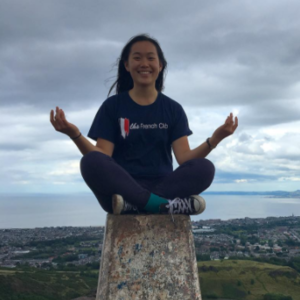Do you ever get tired of binge watching mind numbing episodes of Friends and think “Maybe there’s more to life than repetitive sitcom TV”? Though I do love Friends, sometimes I crave a little more depth in television. A good documentary is the best way to kick start a new habit, be it eating healthier or being happier. So, here are 4 documentaries you can watch on Netflix that will change your life for the better.
1. Food, Inc.
Food, Inc. explores the negative effects of corporate farming on food production in the U.S. These big companies have grown to control all aspects of the food production chain, from the farm to the supermarket. The film examines how the meat, vegetable, and grain industry are economically and environmentally unsustainable. It also explores the power that these companies have over government and the average American consumer. Food, Inc. promotes buying locally grown produce and eating at organic restaurants.
How it changed my life: I became a pescatarian after watching this documentary because of the unsanitary food production conditions and the negative impacts of meat production on our environment. Additionally, the food industry is becoming increasingly monopolized. For example, Monsanto now controls 90% of the soybean market compared to 2% in the 1970s. It was also horrifying to learn that after being taken to court by meat and poultry companies, the USDA no longer has the power to shut down meat plants that have failed salmonella and E. coli testing.
2. Fed Up
Fed Up implicates sugar as the main cause of obesity in the U.S. The documentary discusses topics such as the power of the sugar industry, the rise of type 2 diabetes, how low-fat doesn’t always equate to the healthier option, and how sugar can show up in unexpected foods such as spaghetti sauce. The film examines the keys to a healthier lifestyle, such as the need to supplement healthier eating with exercise because calories are not created equal.
How it changed my life: Fed Up inspired me to cut down on my processed sugar intake. I decided to cut down on all desserts from dining halls and to eat less processed foods in general. I was alarmed to find out that 80% of grocery store items have added sugar, and my favorite fact from the documentary is that sugar is more addictive than cocaine. In a laboratory study, 43 cocaine addicted rats were given the choice between cocaine and sugar water over a 15 day period. Turns out, 40 out of the 43 rats chose sugar.
3. The True Cost
The True Cost taught me about the fast fashion epidemic, the people who make our clothes, and the impact of the fashion industry on our world economically and environmentally. Instead of 2 fashion seasons a year, the fashion world now has 50-100 fashion microseasons, which has led to fast fashion. This encourages consumers to buy as much clothing as possible as quickly as they can. Fast fashion and competitive pricing have created deteriorating working conditions and an increasing death toll, as seen by the 2013 Savar building collapse in Bangladesh where over a thousand workers were killed. The documentary encourages shopping smarter, such as buying clothing from stores who use fair trade standards.
How it changed my life: After finishing the documentary, I made a promise to myself to never buy any clothing again unless I had a real need for it. Soon after, I realized this was an unattainable goal, so I went on the The True Cost website for tips to shop smarter. The first piece of advice is to ask yourself if you would wear the article of clothing 30 times. I now follow this rule religiously when I go shopping, and it has stopped me from a lot of impulse buys.
4. Minimalism: A Documentary About The Important Things
Minimalism follows “The Minimalists,” Joshua Fields Millburn and Ryan Nicodemus, who are 2 ex-corporate executives who have discovered the key to happiness in life. Hint: it’s the opposite of money and materialism. They explore the “less is more” philosophy and the problems with compulsory consumption. The film explores different aspects of minimalism, such as tiny houses and downgrading your closet, and includes interviews from various types of minimalists.
How it changed my life: We all get overwhelmed when school gets too stressful and this documentary helped me keep things in perspective. I’ve realized that even in the future, if i’m not earning a lot of money, I can still find happiness in the people around me and lead a meaningful life. It’s nice to be reminded that material goods aren’t everything. The last line of the documentary states “love people and use things, because the opposite never works,” which really stuck with me and has reminded me to value the people in my life more.
These documentaries helped me become a healthier person, physically and mentally. Plus, all 4 documentaries are available on Netflix, so check them out if you want a break from whatever show you’ve been binge-watching.


